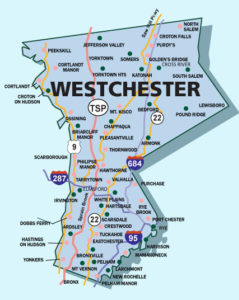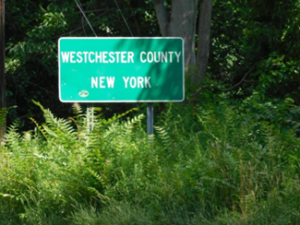Trusted Mold Testing Service in Westchester County

Are there frequently mold problems in Westchester?
Yes. A significant number of houses, apartments, condos and commercial buildings have developed unhealthy amounts of mold in them that cause a danger to the inhabitants.

There are a number of reasons. Mold requires moisture to grow. This can happen anywhere, especially if there are plumbing leaks, water infiltration, or inadequate roof ventilation, however, Westchester contains a specific set of geographical that act as a catalyst for moisture activity. First of all, Westchester is bordered on the east by the Long Island Sound, which is part of the Atlantic Ocean. On the west, it is bordered by the Hudson River. There are also a copious amount of lakes, streams and reservoirs in the county. Unlike much of the western parts of the United States, it contains deciduous vegetation which receives a significant amount of rainfall as well as snow. And finally, lower Westchester has a high water table, meaning that the underground aquifer is fairly close to the surface. This results in frequent water seepage in basements. And during storms, not only does flooding occur, but waves from the east coast sweep ashore and engulf nearby homes.

Since water and moisture are the catalysts for mold growth, the best course of action is to do everything to prevent it from entering your home. Basements that are prone to flooding or seepage of any kind – even a few drops, should have a waterproofing system installed by either a qualified waterproofing company or one that is designed by a civil engineer (PE). All plumbing should be inspected for leaks or potential leaks, including an assessment of the age and condition of mechanicals such as water heaters. All outside siding, windows and penetrations should be sealed so as to be waterproof. Roofs should have proper ventilation so the house can breathe. This may encompass soffit vents and a ridge vent that are not blocked by insulation, a mechanical venting system, or a conditioned space with foam insulation. An engineer (PE) should be consulted for the specific design. All bathrooms should have a fan that is vented to the outside – not the attic or just circulating around the bathroom, and always used while showering until the moisture has receded. Finally, a dehumidifier that is properly sized for the specific space should be installed in the basement and/or crawlspace. Many HVAC companies will size these, supply and install them.
What should be done if you suspect you have mold in your home or building?
The first thing you should do is immediately contact a licensed mold assessor in Westchester such as Certified Inspections, Inc. They will look over your entire house and property, take samples, submit them to a lab and then issue you a report. You may be pleasantly surprised to find you do not have a mold problem after all. If you do, however, the assessor will identify the cause of the mold, write a site-specific remediation protocol (action plan) to get rid of it, and if you wish, recommend qualified remediation contractors, and also he will tell you what you should do to prevent any mold from growing back in the future.
